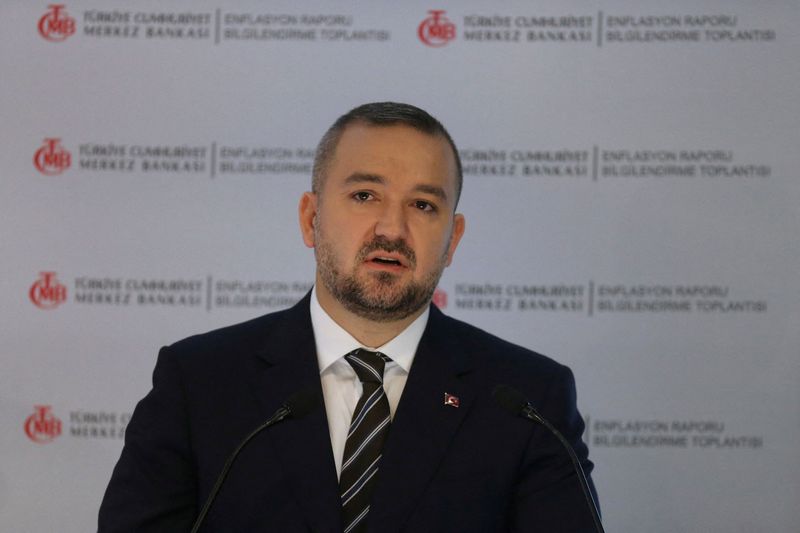By Nevzat Devranoglu
ANKARA (Reuters) - Turkey's central bank is determined to combat soaring prices and will stick patiently to its tight policy stance, Governor Fatih Karahan told Reuters, as a series of aggressive rate hikes start to bring down sky-high inflation.
"We will maintain tightness and wait for data and expectations to get in line with our disinflation path. We think we still have some way to go in this regard," Karahan said in an interview late on Wednesday.
"We want to see a significant and sustained fall in the underlying trend of monthly inflation. We are extremely determined to bring down inflation," Karahan said in the interview, his first with the media since becoming central bank chief in February.
His hawkish tone comes after data on Wednesday showed Turkey's annual inflation rate began what is expected to be a sustained fall in June, dipping more than expected to 71.6%. Monthly inflation also cooled markedly.
The central bank has held policy steady, vowing to act if the inflation outlook worsens, since raising rates by 500 basis points, or 5 percentage points, to 50% in March.
It has tightened by 4,150 basis points since June 2023, reversing a years-long low-rates policy championed by President Tayyip Erdogan to boost economic growth.
The lira weakened slightly to 32.5675 against the dollar and Istanbul's main share index was 0.5% firmer on Thursday.
Annual inflation is down from 75.45% in May, the highest since November 2022.
Last month's dip raised some expectations that the central bank would soon ease policy, with Goldman Sachs predicting a rate cut around September given building pressure on the lira.
But Karahan, who was a deputy bank governor before Erdogan named him chief in February, appeared to push back on this.
"We are seeing signs of demand rebalancing and its impact on prices. It is not healthy to draw conclusions from a single data point in this period of high volatility. We act with the determination and caution of a central bank," he said.

QNB Finansbank said Karahan's comments emphasised it was too early to perceive the June inflation dip as a trend change and aimed "to prevent expectations of an early interest rate cut".
The central bank expects disinflation to take hold in the second half of the year and forecasts an end-year rate of 38%, due to its tight policy stance. Economists polled by Reuters expect the inflation rate to fall to around 42% by year end.